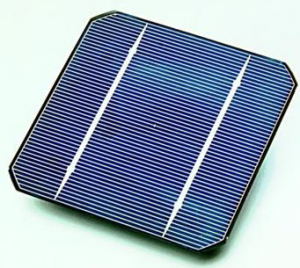TUESDAY, 31 AUGUST 2010
Organic solar cells have significant advantages over conventional solar cells: they have a low impact on the environment, manufacturing is cheap and because they based on flexible plastic sheets their applications outperform the current use of solar panels.Solar panels absorb energy from the sunlight and dissociate the charges to produce an electric current. Organic solar panels use conjugated polymers for light absorption. Until now, a technical difficulty had been that the charge dissociation of these materials is very poor and photo-induces energy that cannot be collected efficiently.
Yana Vaynzof and his Cambridge team added an extra layer of material to overcome this problem: their system still relies on a organic polymer to catch the light, but works with an metal-oxide layer underneath it to increase the charge dissociation. This improved the efficiency of the solar panel from 30% for the unmodified devices to nearly 100% for panels with a metal-oxide layer.
Written by Sara Deitz

